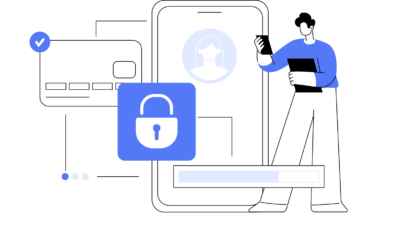Effective Survey Questions

Customer satisfaction is paramount to the success of any business, and effective survey questions in an after-call survey are powerful tools to gauge the quality of customer service provided. Crafting well-designed survey questions is essential to obtaining valuable feedback that can be used to enhance customer experience and improve overall performance. In this blog post, we will explore some key tips for writing good after-call survey questions that yield actionable insights.
Keep it Concise and Clear
The first rule of creating effective after-call survey questions is to keep them short and easy to understand. Avoid using jargon or complicated language that could confuse customers. Clearly state the purpose of the survey and make sure each question has only one main focus. Brevity will encourage more respondents to complete the survey and ensure accurate feedback.
Use Closed-Ended Questions
Closed-ended questions with predefined response options are highly recommended for after-call surveys. They are easy to answer and allow for quick data analysis. Utilize rating scales (e.g., 1-5) or multiple-choice questions to capture specific feedback on various aspects of the customer service experience. Limit the number of response options to prevent respondents from feeling overwhelmed.
Example: On a scale of 1 to 5, how satisfied were you with the representative’s assistance?
Include an Open-Ended Question
While closed-ended questions are efficient, don’t forget to include at least one open-ended question to encourage customers to share their thoughts in their own words. This type of question can provide invaluable insights into areas you might not have considered or specific issues customers want to address. It also allows customers to express themselves freely, leading to a deeper understanding of their needs and concerns.
Example: Please provide any additional comments or suggestions regarding your customer service experience.
Avoid Leading Questions
Ensure your questions are neutral and do not influence respondents to provide a specific answer. Leading questions can skew survey results and hinder the collection of authentic feedback. Stick to unbiased questions that allow customers to express their genuine opinions.
Example:
Leading Question: How satisfied were you with the exceptional customer service provided by our representative?
Neutral Question: How would you rate your overall customer service experience?
Prioritize Relevant Questions
Respect your customers’ time by focusing on relevant aspects of their interaction with your company. Tailor the survey questions to capture specific areas of interest or recent service experiences. Irrelevant questions may lead to survey abandonment or inaccurate responses.
Test the Survey Internally
Before deploying the after-call survey to customers, conduct thorough testing within your organization. Get feedback from colleagues or a select group of employees who represent potential respondents. This step will help identify any confusing questions, technical issues, or missing aspects that should be addressed before the survey goes live.
Balance Positive and Negative Questions
A well-rounded after-call survey should include both positive and negative questions. This balance allows you to understand what aspects of your service are working well and which areas need improvement. It also prevents the survey from appearing biased or overly focused on any one aspect.
Example:
Positive Question: What did you appreciate most about your interaction with our representative?
Negative Question: What areas do you think we could improve upon to enhance your customer experience?
Conclusion
Crafting effective after-call survey questions is crucial to gathering valuable feedback that can drive improvements in your customer service. By focusing on effective survey questions that are concise, neutral, and relevant, and by incorporating both closed-ended and open-ended formats, you can obtain actionable insights that will help elevate the overall experience for your customers. Remember that an after-call survey is a direct line to understanding your customers better, so use it wisely to nurture and strengthen your relationship with them.
Contact Us
Ready to improve your customer service experience? Contact us today to learn more about crafting effective after-call surveys tailored to your business needs. We’re here to help you gather the insights you need to succeed.
Categories
- Agent Performance & Training
- AI solutions
- Business Growth
- Call Center Performance & Productivity
- Call Center Software Platform
- Call Center Technology & AI Integration
- Call Center Training
- Call Center Workforce Management
- Call Monitoring
- Cloud-Based Solutions
- Customer Experience
- Data Security
- General
- Insights
- Integrated Customer Service
- News
- Omnichannel Communication Strategy
- Omnichannel Support
- Quality Assurance
- Tech


